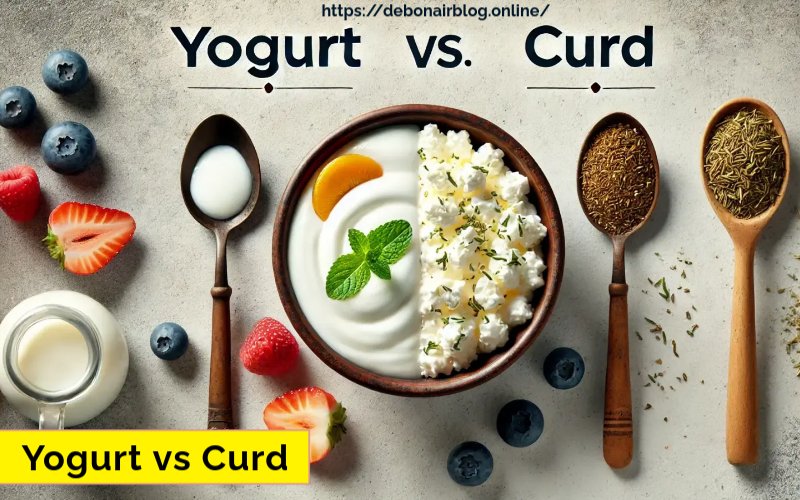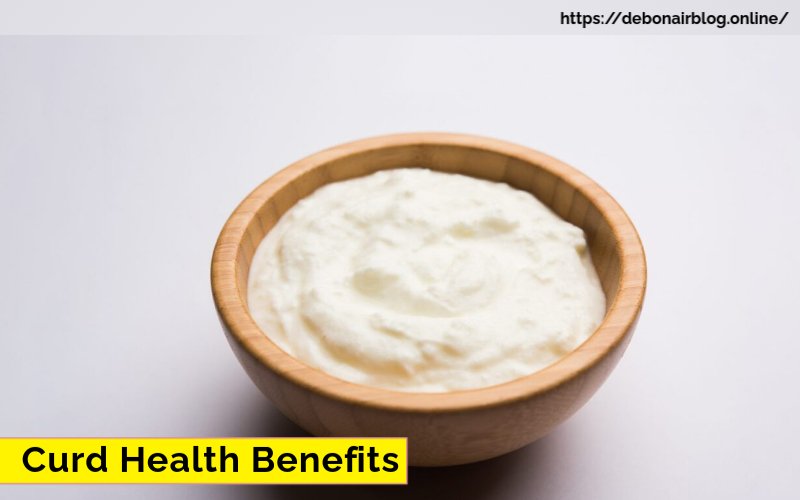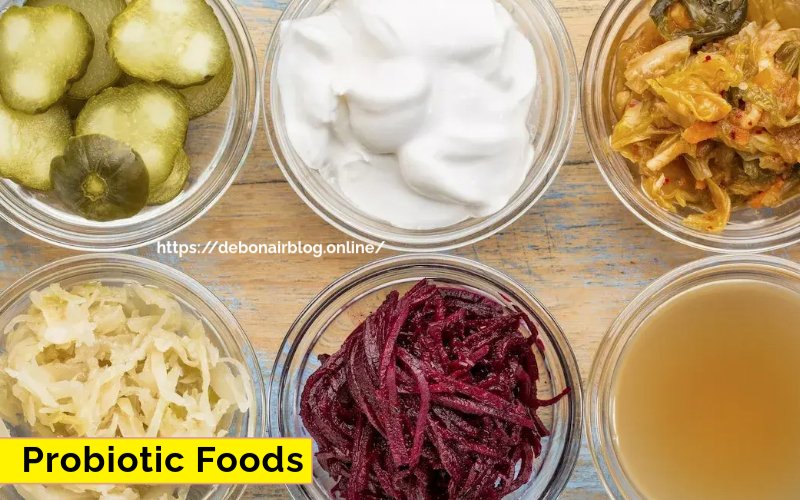
Yogurt vs Curd: Discover the Key Differences and Health Benefits in 2024
Table of Contents
When it comes to dairy products, yogurt and curd often find themselves at the center of many culinary discussions. While they may seem similar, these two fermented foods have distinct characteristics, uses, and health benefits.
In this article, we will explore the key differences between yogurt and curd, delve into their health benefits, and provide insights on how to make each at home.
Understanding Curd and Yogurt
Curd, known as dahi in Hindi, is a traditional fermented dairy product that has been enjoyed in India for centuries. It is created by coagulating milk using a bacterial culture or an acidic substance like lemon juice or vinegar. The process of making curd is relatively simple and can be done at home with just a few ingredients.
Yogurt, on the other hand, is a broader term that encompasses various types of fermented milk products. It is made by fermenting milk with specific bacterial strains, primarily Lactobacillus bulgaricus and Streptococcus thermophilus.
Yogurt can be found in many forms, including Greek yogurt, which is thicker and creamier due to the removal of whey.
The Curd Making Process
Making curd at home is an easy and rewarding experience. Here’s a simple guide on how to make thick curd:
- Ingredients Needed: You will need whole milk (preferably full-fat) and a small amount of existing curd or yogurt as a starter.
- Boil the Milk: Pour the milk into a pot and bring it to a boil over medium heat. Stir occasionally to prevent it from burning.
- Cool Down: Once boiled, allow the milk to cool down until it reaches lukewarm temperature (about 110°F or 43°C).
- Add Starter: Add 1-2 tablespoons of curd to the warm milk and mix well.
- Cover and Set: Cover the pot with a lid or cloth and place it in a warm area to set for 6-10 hours.
- Refrigerate: Once set, refrigerate your homemade curd for later use.
This straightforward curd making process ensures you have fresh dahi ready for various recipes.
Yogurt Nutrition
Yogurt is not only delicious but also packed with nutrients. It contains essential vitamins such as B12, calcium, phosphorus, riboflavin, and potassium. The nutritional profile may vary depending on the type of yogurt consumed:
- Regular Yogurt: Typically contains around 150 calories per cup with about 8 grams of protein.
- Greek Yogurt: Thicker and creamier than regular yogurt, Greek yogurt has about 20 grams of protein per cup while being lower in sugar.
Incorporating yogurt into your diet can provide numerous health benefits due to its rich nutritional content.
Curd Health Benefits

Curd offers several health advantages that make it a staple in many diets:
- Probiotic Properties: Curd is rich in probiotics, which are beneficial bacteria that support gut health. Regular consumption can enhance digestion and improve overall gut flora balance.
- Digestive Aid: Consuming curd can help alleviate digestive issues such as bloating and constipation due to its high content of live cultures.
- Nutrient Absorption: The fermentation process increases the bioavailability of nutrients in milk, making it easier for your body to absorb essential vitamins and minerals.
These curd health benefits make it an excellent addition to any meal.
Benefits of Yogurt
Yogurt also boasts an array of health benefits that contribute to its popularity:
- Gut Health: Like curd, yogurt is known for its probiotic content which promotes healthy digestion and can help prevent gastrointestinal disorders.
- Immune System Support: Regular consumption of yogurt can boost your immune system due to its rich nutrient profile and probiotic properties.
- Skin Health: Yogurt has been recognized for its skin benefits as well; applying it topically can help soothe irritation and hydrate the skin.
The diverse benefits of yogurt make it an ideal choice for those seeking a healthy lifestyle.
Curd vs Yogurt Differences
While both curd and yogurt are fermented dairy products, there are notable differences between them:
| Feature | Curd | Yogurt |
| Fermentation Process | Made by adding culture or acid | Made using specific bacterial strains |
| Texture | Usually smooth but can be grainy | Creamy with varying thickness |
| Nutritional Profile | Rich in probiotics | Higher protein content (especially Greek) |
| Culinary Uses | Common in Indian cuisine | Versatile across various cuisines |
Understanding these yogurt vs curd differences can help you choose the right product based on your dietary needs.
Cooking with Yogurt
Yogurt is incredibly versatile in cooking. It can be used in both savory and sweet dishes:
- Savory Dishes: Use yogurt as a base for marinades or dressings. It adds creaminess to dishes like curries or salads.
- Baking: Substitute yogurt for oil or butter in baking recipes to create moist cakes or muffins while reducing fat content.
- Smoothies: Blend yogurt with fruits for a nutritious breakfast or snack option.
Incorporating yogurt into your cooking not only enhances flavor but also boosts nutritional value.
Curd Recipes You Must Try
Curd is integral to many traditional Indian dishes. Here are some popular recipes featuring curd:
- Raita: A cooling side dish made with curd mixed with vegetables like cucumber or carrots.
- Kadhi: A spicy curry made from gram flour and seasoned curd.
- Dahi Vada: Soft lentil dumplings soaked in spiced curd topped with chutneys.
These delicious curd recipes showcase the versatility of this dairy product in Indian cuisine.
How to Make Curd at Home
Making curd at home is not only easy but also allows you to control the ingredients used. Here’s an alternative method if you want to experiment:
- Boil whole milk as mentioned earlier.
- Allow it to cool down slightly before adding chili stalks instead of starter curd; this traditional method works well too.
- Cover it up and let it set until firm.
This method provides a unique twist on the classic preparation of homemade curd.
Probiotic Foods for Gut Health

In addition to yogurt and curd, there are various other probiotic foods that can promote gut health:
- Kefir: A fermented milk drink similar to yogurt but thinner in consistency.
- Sauerkraut: Fermented cabbage that provides beneficial bacteria along with fiber.
- Kimchi: A spicy Korean side dish made from fermented vegetables.
Including these probiotic foods in your diet can further enhance your gut health alongside yogurt and curd.
The Cultural Significance of Curd and Yogurt
Curd and yogurt hold a special place in many cultures around the world. In India, curd is not just a food item; it is an integral part of daily life and rituals. It is often used in religious ceremonies, symbolizing purity and prosperity. For instance, during festivals, curd is offered to deities as a sign of respect and devotion.
In contrast, yogurt has its roots in various ancient civilizations. The earliest records of yogurt consumption date back to the Middle East and Central Asia. It was believed that nomadic tribes discovered yogurt accidentally while transporting milk in animal skins.
Today, yogurt is celebrated globally, with different cultures adding their unique twist to it—like tzatziki in Greece or lassi in India—showcasing its versatility across cuisines.
Exploring Different Types of Yogurt
Yogurt comes in various forms, each with its unique taste and texture. Here are some popular types:
- Regular Yogurt: This is the most common type, typically smooth and creamy. It can be found in both flavored and plain varieties.
- Greek Yogurt: Known for its thick texture, Greek yogurt is strained to remove whey, resulting in higher protein content—perfect for smoothies or as a base for dips.
- Skyr: An Icelandic dairy product similar to Greek yogurt but thicker and creamier; it’s high in protein and low in fat.
- Frozen Yogurt: A popular dessert option that provides a creamy texture similar to ice cream but with lower fat content.
- Non-Dairy Yogurt: Made from plant-based ingredients like almond milk or coconut milk; these yogurts cater to those who are lactose intolerant or prefer vegan options.
Each type of yogurt offers distinct nutritional benefits, making it easy to find one that fits your dietary needs.
The Role of Yogurt in Immune System Support
Yogurt plays a vital role in boosting the immune system:
- Nutrient-Rich Profile: Yogurt contains essential nutrients like zinc, vitamin D, calcium, B vitamins—crucial for maintaining robust immunity.
- Probiotics & Immunity: The probiotics found in yogurt help modulate immune responses by enhancing immune cell activity.
- Anti-inflammatory Properties: Regular consumption may reduce inflammation linked to chronic diseases.
Adding yogurt into your daily diet can effectively support your immune system! If you’re interested in immune system-boosting foods, here are some articles you might find helpful
Creative Ways to Include Curd in Your Diet
Curd can be used creatively beyond traditional uses! Here are some innovative ways:
- Smoothies: Blend curd with fruits like bananas or berries for nutritious breakfasts or snacks!
- Salad Dressings: Use curd as a base for creamy dressings by mixing herbs/spices for added flavor!
- Marinades: Curd makes an excellent marinade for meats; try marinating chicken/paneer before grilling!
- Baking Substitute: Replace sour cream/buttermilk with curd when baking cakes/muffins—adds moisture without excessive fat!
These creative uses highlight how versatile curd can be!
The Science Behind Fermentation
Fermentation transforms milk into yogurt/curd through microbial action:
- Bacterial Cultures Introduced: Specific bacteria ferment lactose (milk sugar) into lactic acid when heated/cooled milk introduces them (either from starter culture/naturally present).
- Thickening Process: Increased lactic acid lowers pH causing coagulation/thickening into yogurt/curds!
- Flavor Development: As fermentation continues—various compounds develop flavors unique; this process enhances nutritional value!
Understanding this science adds depth appreciation towards these fermented foods!
Traditional Recipes Around the World
Many cultures have their traditional recipes featuring yogurt/curds! Here are notable examples:
Lassi (India)
A refreshing drink made from blended yogurt mixed with water/fruits like mango; enjoyed during hot weather!
Tzatziki (Greece)
A savory dip made from strained yogurts mixed with cucumber/garlic/olive oil/lemon juice/salt/herbs!
Raita (India)
A side dish made from yogurts mixed with vegetables/fruits; served alongside spicy dishes balancing flavors!
Cacik (Turkey)
Similar tzatziki but thinner; made from yogurts mixed cucumbers/herbs served dip/side dish!
These traditional recipes showcase how diverse cultures utilize yogurt/curds creatively!
The Impact of Yogurt on Skin Health
Yogurt has gained popularity not just as food but also skincare ingredient due numerous benefits:
- Moisturizing Properties: Lactic acid present acts natural moisturizer hydrating dry skin effectively!
- Exfoliation: Gently exfoliates dead skin cells when applied topically improving texture/tone!
- Soothing Irritation: Applying plain yogurts soothes sunburns/rashes due cooling effect irritated skin!
Incorporating yogurts into skincare routine yields significant benefits skin health!
Real-Time Case Study
Let’s take a look at how incorporating yogurt into daily diets has transformed lives:
Case Study: The Patel Family
The Patel family from Gujarat decided to include homemade yogurt into their daily meals after learning about its health benefits. They replaced sugary snacks with yogurt-based desserts like lassi/smoothies! Within three months—they noticed significant improvements digestion/overall energy levels! Their children enjoyed experimenting different flavors adding fruits/honey making healthy eating fun!
This case study illustrates how simple dietary changes lead substantial health improvements families!
Additional FAQs About Curd and Yogurt
- Can I make flavored yogurt at home?
Yes! You can add fruits/honey/vanilla extract after making plain yogurts delicious flavored options!
- Is homemade yogurt better than store-bought?
Homemade allows control over ingredients often fewer additives compared store-bought varieties!
- What’s best way consume yogurts?
Enjoying plain adding fresh fruits/nuts makes healthy snack incorporating meals enhances flavor while boosting nutrition!
- Can I use almond milk instead cow’s milk making yogurts?
Yes! You can make dairy-free using almond along appropriate cultures designed non-dairy fermentation!
- How do I know if my homemade curds gone bad?
Signs include off smells/discoloration/mold growth; always check before consuming homemade products!
- Are there specific diets recommend increased consumption yogurts?
Yes! Diets such Mediterranean emphasize fermented foods like yogurts due their health benefits!
- Is there difference between low-fat Greek yogurts regular Greek?
Low-fat contains less fat may added sugars; regular typically more fat content offers greater satiety!
- Can I mix different types yogurts together?
Yes! Mixing different types create unique flavors while enhancing nutritional profiles!
- How long does homemade yogurts last?
When stored properly airtight container fridge lasts about 1-2 weeks!
- What’s better weight loss—yogurts or curds?
Both offer health benefits choose based on personal preference considering portion sizes!
- Can I use expired store-bought yogurts starter culture?
Best not use expired products however still within date range without spoilage signs check freshness before use!
- Does cooking destroy probiotics yogurts?
Yes! Heating above 115°F (46°C) kills beneficial probiotics consume raw possible maximum benefits!
Conclusion
In summary—both yogurts & curds aren’t just delicious dairy products; they’re packed health benefits catering various dietary needs! From supporting gut health enhancing skin vitality—these fermented foods offer something everyone! Understanding differences allows making informed choices about which product best suits lifestyle!
Whether enjoying them own incorporating creatively recipes—both yogurts & curds deserve prominent place dining table! So go ahead—explore new ways enjoy these nutritious foods!

